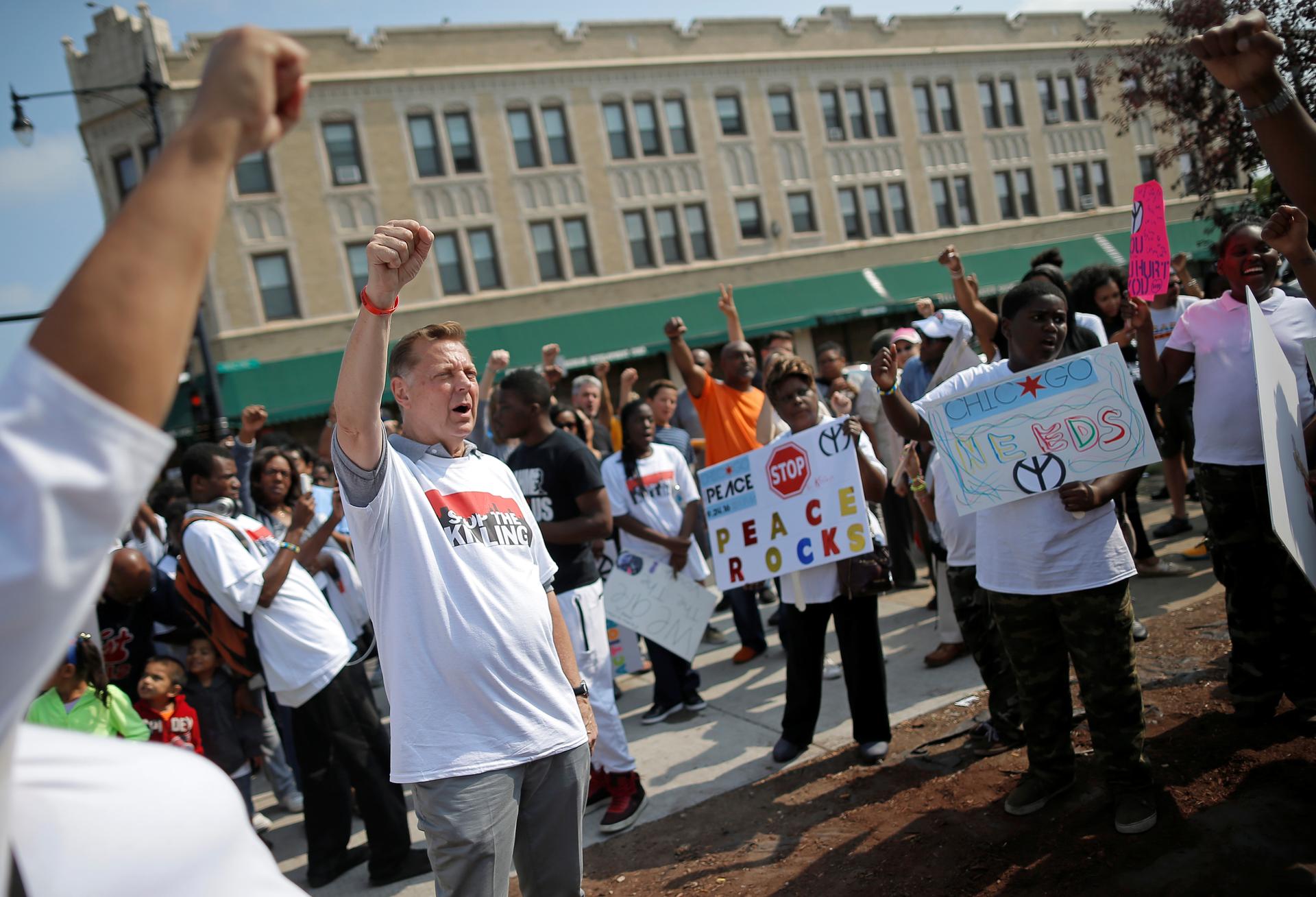A spate of violence in Chicago on Christmas puts an exclamation point on a rough year
Father Michael Pfleger takes part in an anti-violence peace demonstration in a South Side neighborhood in Chicago on Sept. 24, 2016.
There were 61 shootings in Chicago over the Christmas weekend resulting in 11 fatalities — seven of them on Christmas Day alone. This comes at the end of a particularly violent year for the city, which is experiencing its highest murder rate since the 1990s.
So far, there have been at least 753 homicides in 2016.
Gary Slutkin is the CEO and founder of Cure Violence, an anti-violence initiative that has become a model for programs to curb violence in cities across the US. But similar efforts in Chicago have so far been ineffective.
Cure Violence and similar initiatives operate in 20 different cities in the US, including New York, Los Angeles, Baltimore and Washington DC. They operate by treating gun violence as a public health issue and trying to cure it, like a disease. Slutkin is an epidemiologist and an infectious disease doctor by training — he says the medical framework through which he views gun violence is “more than an analogy, it’s definitional.”
Individuals who work with the programs are called "violence interrupters," and they coordinate with a network of outreach workers, supervisors and program managers to identify people at risk of committing acts of violence.
“When events are brewing, workers can determine in advance that someone is mad because somebody owes someone money or there’s a retaliation. So these workers who are highly embedded in the community, just as we have workers embedded in the community in West Africa for Ebola, are able to see the early signs, and they’re highly trained at cooling people down and buying time.”
According to the Chicago Tribune, the majority of the Christmas shootings were retaliatory in nature. “These were deliberate and planned shootings by one gang against another. They were targeted knowing fully well that individuals would be at the homes of family and friends celebrating the holidays. This was followed by several acts of retaliation,” police Superintendant Eddie Johnson told the Tribune.
According to Slutkin, retaliation can be prevented through the Cure Violence model. And it has worked in other cities.
In New York, an initiative called Save Our Streets in the Crown Heights neighborhood led to a 6 percent decrease in monthly gun violence. Meanwhile, surrounding neighborhoods without the initiative saw an 18 to 28 percent increase. In Baltimore, an evaluation by the Centers for Disease Control and Prevention and Johns Hopkins University showed “statistically significant reductions in all four program sites with reductions in killings of up to 56 percent and in shootings of up to 44 percent,” according to the Cure Violence website.
So why isn’t it working in Chicago?
Slutkin blames a 2015 defunding, which vastly reduced the number of neighborhoods Cure Violence works in. A similar initiative called Operation Ceasefire, in which former gang members sought to interrupt potentially violent disputes (it was featured in the award-winning documentary “The Interrupters") was similarly obstructed when Republican Gov. Bruce Rauner cut off funding in October 2015.
According to the Brennan Center for Justice, Chicago’s murder streak is driving up the homicide rate for the entire country, accounting for nearly half of the 14 percent nationwide increase.
While other cities continue to allocate funding for anti-violence initiatives, the same can’t be said in Chicago.
This story was first published as an interview on PRI's The Takeaway, a public radio program that invites you to be part of the American conversation.
